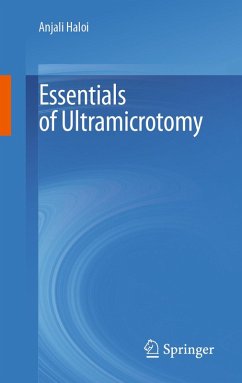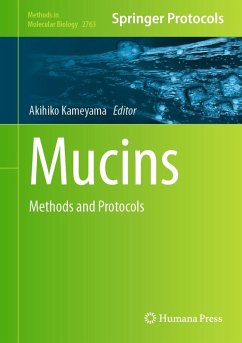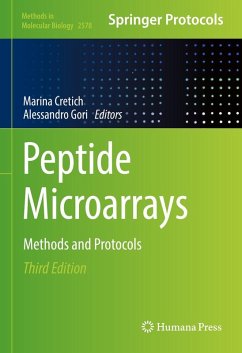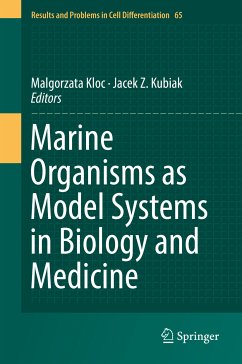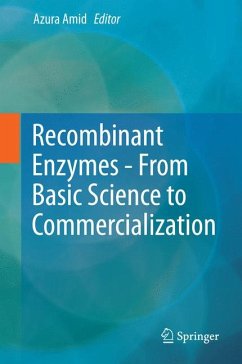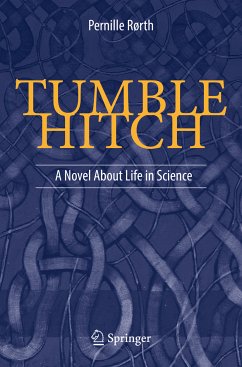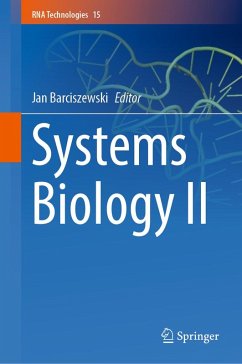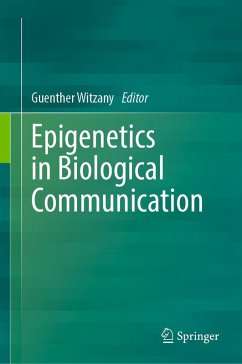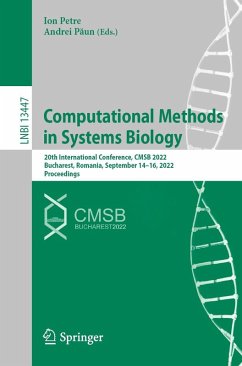
Cryo-Electron Tomography (eBook, PDF)
Structural Biology in situ
Redaktion: Förster, Friedrich; Briegel, Ariane
Versandkostenfrei!
Sofort per Download lieferbar
160,95 €
inkl. MwSt.
Weitere Ausgaben:

PAYBACK Punkte
80 °P sammeln!
This book presents key aspects and recent developments of cryogenic sample electron tomography (cryo-ET) methodology, authored by leading experts in the field. Understanding structure and function of biomolecules in the context of cells is a new frontier in cellular and structural biology. To facilitate such research, cryo-ET is a key method to visualize the molecules of life in their native settings. Cryo-ET enables the imaging of samples that are preserved in a near-native state, at (macro)-molecular resolution and in three dimensions. Thus, this technique is a unique tool to gain insights i...
This book presents key aspects and recent developments of cryogenic sample electron tomography (cryo-ET) methodology, authored by leading experts in the field. Understanding structure and function of biomolecules in the context of cells is a new frontier in cellular and structural biology. To facilitate such research, cryo-ET is a key method to visualize the molecules of life in their native settings. Cryo-ET enables the imaging of samples that are preserved in a near-native state, at (macro)-molecular resolution and in three dimensions. Thus, this technique is a unique tool to gain insights into how biomolecules collaborate in orchestrating fundamental biological processes, how mutations cause diseases, pathogens cause infections, and to develop novel therapeutics to treat such illnesses. This book provides a unique reference for the emerging field of cryo-ET.
The topics covered range from the fundamental principles of imaging to sample preparation, data analysis,and data sharing within the scientific community. It serves as a valuable resource for the next generation of structural biologists, making it suitable both for undergraduate students studying biochemistry, biophysics, and molecular biology and highly valuable for the more experienced and specialized PhD student. Furthermore, it stands as a state-of-the-art source of knowledge for the established senior scientist within the field of structural biology.
The topics covered range from the fundamental principles of imaging to sample preparation, data analysis,and data sharing within the scientific community. It serves as a valuable resource for the next generation of structural biologists, making it suitable both for undergraduate students studying biochemistry, biophysics, and molecular biology and highly valuable for the more experienced and specialized PhD student. Furthermore, it stands as a state-of-the-art source of knowledge for the established senior scientist within the field of structural biology.
Dieser Download kann aus rechtlichen Gründen nur mit Rechnungsadresse in A, B, BG, CY, CZ, D, DK, EW, E, FIN, F, GR, HR, H, IRL, I, LT, L, LR, M, NL, PL, P, R, S, SLO, SK ausgeliefert werden.



